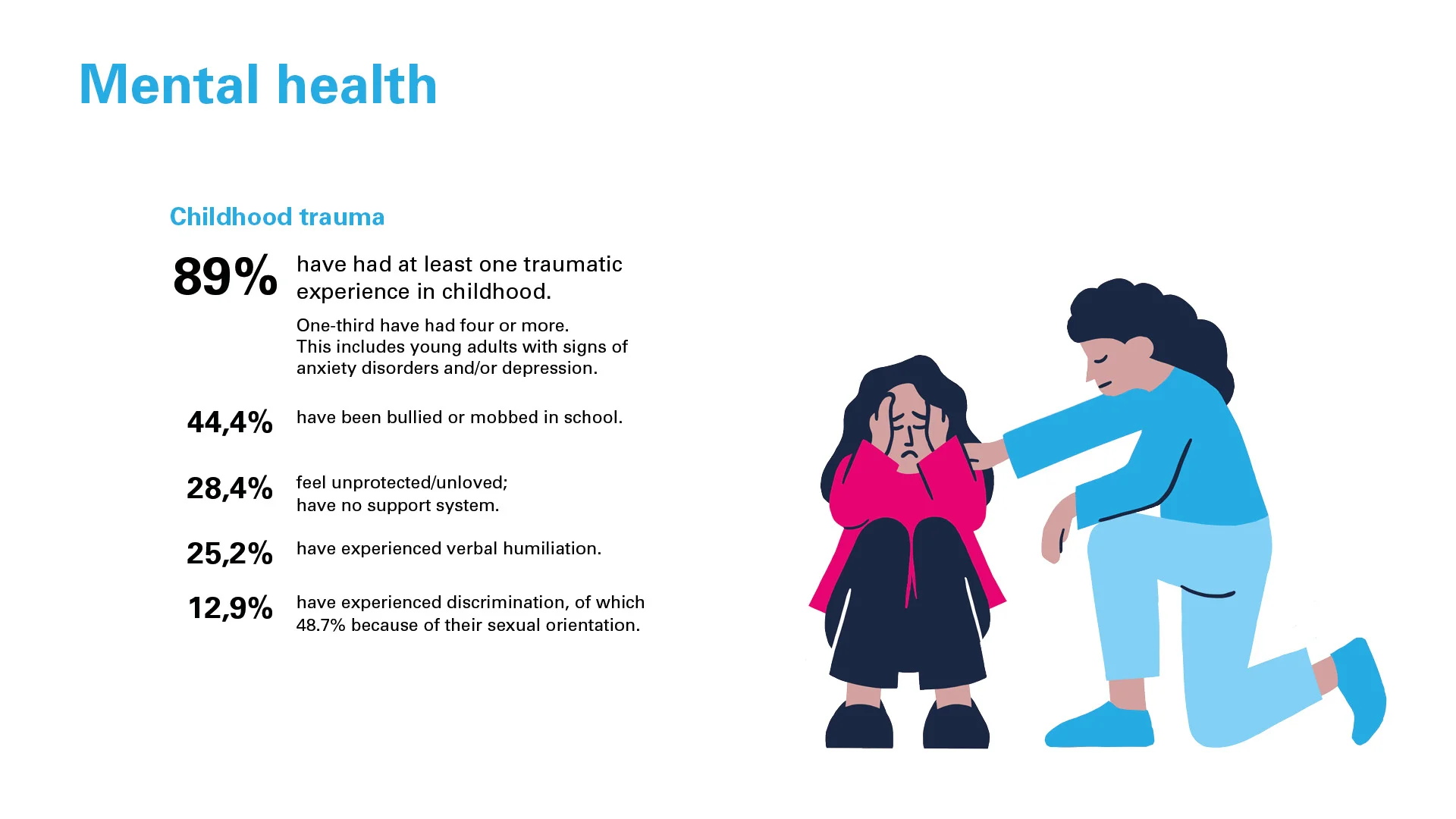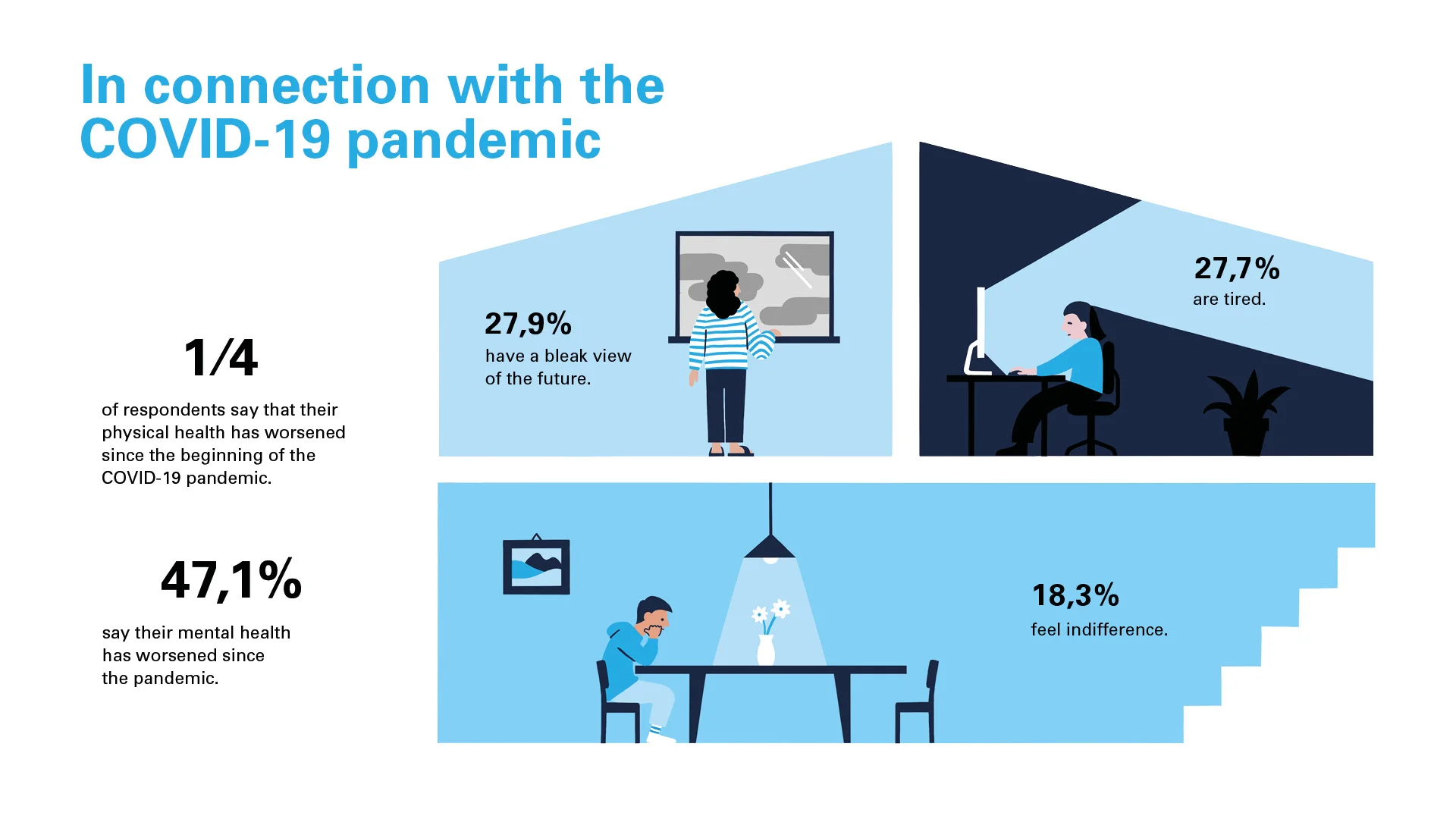What is the state our young people's mental health? A new UNICEF study clarifies the situation and has revealed alarming results. For example, one third of 14- to 19-year-olds in Switzerland and Liechtenstein are affected by mental health problems, and one in eleven young people have attempted to take their own life. In order to strengthen young people’s mental health over the long term, we must invest first and foremost in awareness and prevention.
The study, commissioned by UNICEF with support from the Z Zurich Foundation and Zurich Switzerland, was conducted by Unisanté researchers between spring and summer in 2021. The goal was to identify risk and protective factors for the mental health of young people in Switzerland and Liechtenstein. A total of 1,097 people between the ages of 14 and 19 participated in the study.
Young people often keep their problems to themselves
The results of the study are worrying. For example, 37 percent of the young people surveyed reported that they were affected by mental health problems. 17 percent of the young people with signs of an anxiety disorder and/or depression have already attempted to take their own lives. Of these, as many as 48 percent have made multiple suicide attempts. Overall, 8 percent of all respondents said that they had attempted to take their own lives.
of the young people surveyed
of the young people surveyed
of the young people surveyed
A large proportion of the participants reported negative experiences during childhood. 69 percent said they had faced at least one negative childhood experience. This number rises dramatically, to 89 percent, among young adults with signs of an anxiety disorder and/or depression. One third of these young people had encountered four or more negative childhood experiences.
At the same time, young people often keep their problems to themselves. 29.1 percent of those surveyed said that they do not talk to anyone about their problems, and fewer than half of them seek help from psychosocial care services. Only three percent turn to health or education professionals.
Risk factors
Factors that have a negative impact on the mental development of children and young people are referred to as risk factors. The biggest risk factors identified by the study in Switzerland and Liechtenstein are difficult family circumstances, low socioeconomic status, negative childhood experiences and chronic conditions.
The pandemic has also emerged as a potential driver of poor physical and mental health. A quarter of those surveyed reported that their physical health had deteriorated since the pandemic began. With 47.1 percent rating their mental health as worse than before the pandemic.
Recommendations
As the study shows, mental health problems and disorders often begin in adolescence with many remaining undetected. UNICEF Switzerland and Liechtenstein therefore presents four concrete recommendations:
Prevention programs must reach young people at an early age. Such programs should aim to strengthen protective factors in young people’s immediate environment and involve not only health professionals but also adults.
The stigma around mental health services must be reduced. This can only happen if we as a society learn to talk about our feelings. Achieving this will require a lot of education, which needs to be directed both at young people and at adults.
Services must be developed for and with young people. Only by talking directly to young people can we find out what services they use, how they use them, and what they lack in terms of care. Each and every young person should feel entitled to ask for help. Services should be easily accessible and have sufficient capacity.
Continuous monitoring is essential. The situation of young people and their mental health should be surveyed regularly, both now and beyond the pandemic. This is the only way to assess developments over time. Monitoring should also cover the use of mental health services.
Downloads
The full results of the study, along with a summary, can be downloaded here:


